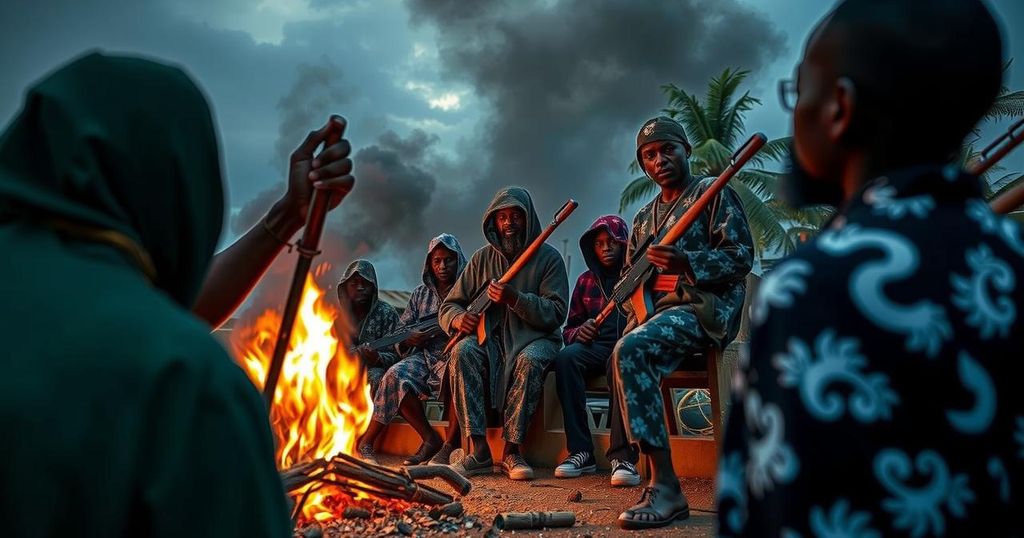A recent attack by the jihadist group Lakurawa in Mera, Nigeria, resulted in 15 fatalities. This group, thought to have crossed from Mali and Niger, targets remote villages, imposing their own form of governance through violence and coercion. The incident reflects the ongoing security crisis in Nigeria, exacerbated by various armed factions and conflicts over resources.
A tragic assault in the village of Mera in northwest Nigeria resulted in the death of 15 individuals, as confirmed by officials. The attack, carried out by unidentified assailants, is linked to a recent surge in activity by a jihadist group named “Lakurawa,” which is believed to have entered Nigeria from neighboring Mali and Niger. This incident comes against the backdrop of escalating violence in the region, exacerbated by the presence of various armed groups including bandits and insurgents. The Deputy Governor of Kebbi State, Umar Tafida, attended the funeral prayers for the victims, while local officials reported the group’s advancing threat to rural communities. The emergence of the Lakurawa group highlights a concerning trend in northwest Nigeria, where armed violence is escalating. Said to be well-equipped and organized, Lakurawa has reportedly begun launching attacks on remote villages, robbing livestock, and enforcing a rigorous interpretation of sharia law. Notably, communities have been coerced into financial pledges to avoid violence, and local youth are reportedly being recruited with financial incentives. The community of Mera suffered a grievous loss when the group struck as residents congregated for Friday prayers, showcasing their tactical advantage. Continued violence in this area is underscored by historical context; since Boko Haram’s emergence in 2009, Nigeria has experienced a cascading wave of violence driven by various splinter groups and bandits. Such instability has dire implications for food security, with estimates from United Nations agencies suggesting that 33 million citizens may face acute food insecurity. As the conflict unfolds, it poses a severe humanitarian challenge compounded by socio-economic pressures on local populations who are already vulnerable to instability.
In the past decade, Nigeria has grappled with pervasive violence stemming from the rise of extremist groups, particularly Boko Haram. The ongoing conflict has led to numerous humanitarian crises, characterized by mass displacement and an increasing number of fatalities. Traditional conflicts between farming communities and pastoralist herdsmen have further exacerbated these challenges, leading to a complex network of violence involving kidnappings and attacks by various armed factions. The introduction of new jihadist groups such as Lakurawa magnifies these issues, as they further destabilize already fragile regions.
The assault in Mera serves as a stark reminder of the escalating violence in northwest Nigeria, driven by the emergence of new jihadist groups like Lakurawa. This tragedy not only sheds light on the immediate security concerns facing local communities but also highlights the broader implications for regional stability and food security. Addressing the multifaceted challenges posed by armed violence and extremism remains crucial for the safety and well-being of the Nigerian populace.
Original Source: thedefensepost.com







